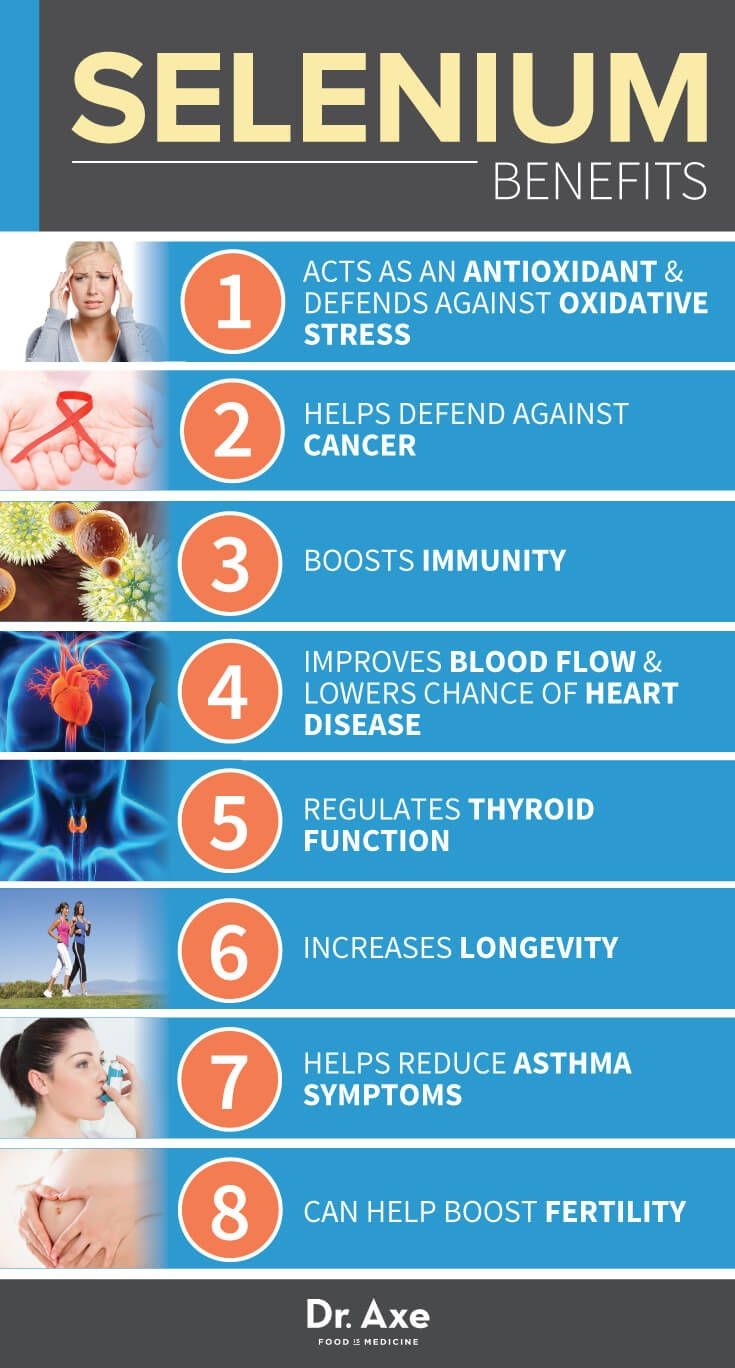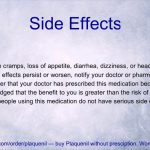
Contents
Selenium
Selenium is an essential trace element required for good health. It must be obtained from dietary intake as the human body does not produce it. People with selenium deficiency often take selenium supplements. These supplements are available over the counter (OTC) as tablets, capsules, or intravenous (IV) injections for those who cannot take it orally.
Deficiency in selenium can impact various systems in the body, including the cardiovascular system, muscles and joints, and cognitive health. Selenium plays a critical role in DNA synthesis, growth, reproduction, thyroid hormone metabolism, immune system function, and antioxidant activity. It is present in the form of selenocysteine amino acid in selenoproteins, which include important enzymes and proteins such as:
- Glutathione peroxidase: Antioxidant enzymes that neutralize reactive oxygen and nitrogen species, protecting tissues from oxidative damage caused by free radicals.
- Iodothyronine deiodinase: Enzymes that activate and deactivate thyroid hormones.
- Thioredoxin reductase: An enzyme that helps form reduced thioredoxin, a source of electrons for enzymes involved in DNA synthesis.
Selenium is naturally present in soil and can be found in various dietary sources such as Brazil nuts, fish, shellfish, poultry, beef, turkey, eggs, beans, dairy, green vegetables, mushrooms, brown rice, and fortified cereals. However, it’s essential to note that selenium supplements should be used cautiously, as excessive intake can be toxic.
Warnings
- Do not use selenium injection for direct intravenous use. It should only be admixed with other nutrients prepared for intravenous administration.
- Exercise caution when using selenium in patients with gastrointestinal or kidney function impairment.
- Intravenous administration of selenium can potentially cause vein damage, blood clot blocks, and pulmonary embolism. Monitor patients for symptoms.
- Selenium injection contains aluminum, which can reach toxic levels in preterm infants and patients with kidney function impairment. Close monitoring is necessary.
- Monitor patients’ selenium levels, electrolytes, blood glucose, blood count, clotting parameters, and liver and kidney function during treatment.
Side Effects of Selenium
Selenium taken in recommended doses does not have any known side effects. However, high doses over an extended period may cause side effects such as:
- Hair loss (alopecia)
- Brittle nails
- Skin rash
- Garlic breath odor
- Gastrointestinal disturbances
- Fatigue
- Irritability
- Tingling and numbness (paresthesia)
- Impairment of speech, balance, and coordination (ataxia)
Rare side effects of selenium intravenous injections include vein damage, blood clot blocks, and aluminum toxicity from the injection solution.
If you experience any serious symptoms or side effects while using selenium, such as serious heart symptoms, severe headache, nervous system reactions, or serious eye symptoms, seek immediate medical attention.
To report side effects or health problems, contact the FDA at 1-800-FDA-1088.
Dosages of Selenium
Tablet
Tablet extended release
Capsule
Injectable solution
Adult Recommended Daily Allowance (RDA)
- Male or female: 55 mcg/day
- Pregnancy: 60 mcg/day
- Lactating: 70 mcg/day
Supplementation
- 100-200 mcg/day orally with meals (preferably); may take 50 mcg orally once daily or once every 6 hours
Pediatric RDA
- Children below 6 months: 15 mcg/day
- Children 6-12 months: 20 mcg/day
- Children 1-3 years: 20 mcg/day
- Children 4-8 years: 30 mcg/day
- Children 8-13 years: 40 mcg/day
- Children 13-18 years: 55 mcg/day
Overdose
- Acute mild to moderate selenium overdose can cause symptoms such as irritability, muscle pain and spasms. Severe overdose can include nausea, vomiting, diarrhea, abdominal pain, garlic breath odor, altered mental status, and circulatory collapse.
- Prolonged overuse of selenium can lead to selenosis, with symptoms such as hair loss, brittle nails, skin rash, garlic breath, gastrointestinal disturbances, fatigue, irritability, tingling and numbness, and impairment of speech, balance, and coordination.
- Selenium does not have a known antidote. Overdose is treated with symptomatic and supportive care.
Drug Interactions
Inform your doctor about all medications you are taking to check for possible interactions. Do not make any changes to your medication without your doctor’s recommendation.
- Selenium has no known severe interactions with other drugs.
- Serious interactions of selenium may occur with drugs such as baloxavir marboxil and eltrombopag, as well as alendronate, bictegravir, deferiprone, dolutegravir, etidronate, ibandronate, omadacycline, penicillamine, raltegravir, risedronate, tiludronate, and trientine.
For more information on drug interactions, visit the RxList Drug Interaction Checker. Always inform your healthcare provider of all medications you use.
Pregnancy and Breastfeeding
- Selenium is an important trace metal for good health, and its requirement increases during pregnancy. Deficiency in selenium and other trace elements can have adverse effects on pregnancy and fetal outcomes.
- Taking recommended doses of selenium supplements during pregnancy to prevent deficiency is acceptable.
- Selenium is present in breast milk, and no adverse events have been observed with recommended doses. However, exercise caution if you are nursing.
- Consult your healthcare provider before taking any OTC products, including selenium, if you are pregnant or breastfeeding.
Additional Information
- Take selenium as prescribed and do not exceed the recommended daily allowance to avoid toxicity.
- Selenium can be obtained from a variety of food sources, so be cautious when considering supplements unless specifically advised by your physician.
- Keep selenium supplements stored safely out of reach of children.
- In case of overdose, seek medical help or contact Poison Control.
By clicking Submit, you agree to the MedicineNet’s Terms & Conditions & Privacy Policy and understand that you may opt out of MedicineNet’s subscriptions at any time.
Summary
Selenium is an essential trace element required for maintaining good health. It is available as a supplement in various forms, including tablets, capsules, and injections. Taking selenium in recommended doses does not typically cause side effects, but excessive and prolonged use can lead to various adverse effects. Selenium can be obtained from natural food sources, and supplementation should only be considered in cases of selenium deficiency under medical supervision.


